Immortals of Aveum Is Far More Than Your Typical Debut Game
Playing Immortals of Aveum, you’d be forgiven for not realizing this is a studio’s debut game. Walking onto a castle balcony, seeing bizarre science-fantasy architecture peppering the horizon, the scale of the magical battle happening beneath you, and the polish of it all shows a level of scale we don’t typically associate with a first game.
That feeling is very deliberate. Founder and CEO of Ascendent Studios, Bret Robbins, has worked on some very big games in the past, and he didn’t want to take a step back in his new venture:
“I wanted to make a big game right from the beginning,” he tells me. “I’d worked on a lot of big games – I’d worked on Call of Duty for nine years before I started Ascendent, I’d worked on Dead Space, I’d worked on Lord of the Rings, and James Bond. So I was comfortable trying to do something ambitious. I knew that games had gotten so great – so big – these days that, for us to be competitive, I needed to make something big.”
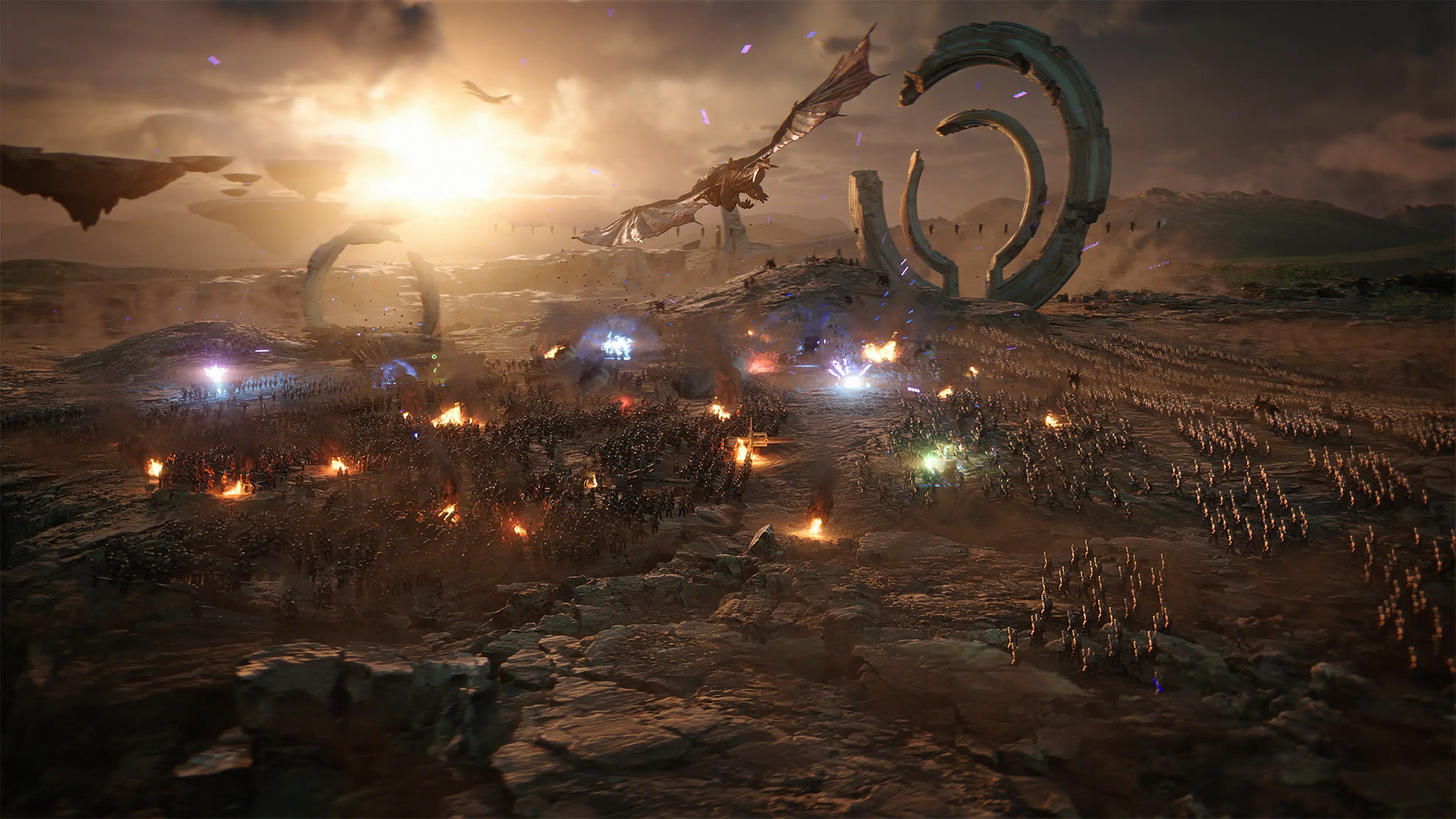
After an hour-long demo of an early level, you can feel that ambition. I take lead character Jak into the frontlines of a magical war, fizzing particle effects filling the screen at every turn, get picked up and dropped by a Howler dragon, jump into a subterranean temple, take on a crack team of warriors from the invading empire of Rasharn, and then get to take my revenge on that same dragon in a boss fight. It’s a lot.
So how has a debut studio (toting a relatively modest 100-person team for a game of this size) achieved something on this scale? The key is focus – Immortals of Aveum wants to be a narrative, single-player FPS, heavy on combat systems and high-fidelity effects, and it’s focusing completely on that goal.
“Some of the best games have that level of focus,” says Robbins. “I certainly had that when we were working on Dead Space. We knew that it needed to be very contained, very scary, do a few things really well. We had some pillars that I had written very early on for this game that, above anything else, [pointed to having] to hit these things and do them well. Having that level of focus and consistency of vision is super important, especially when you’re starting something new.”
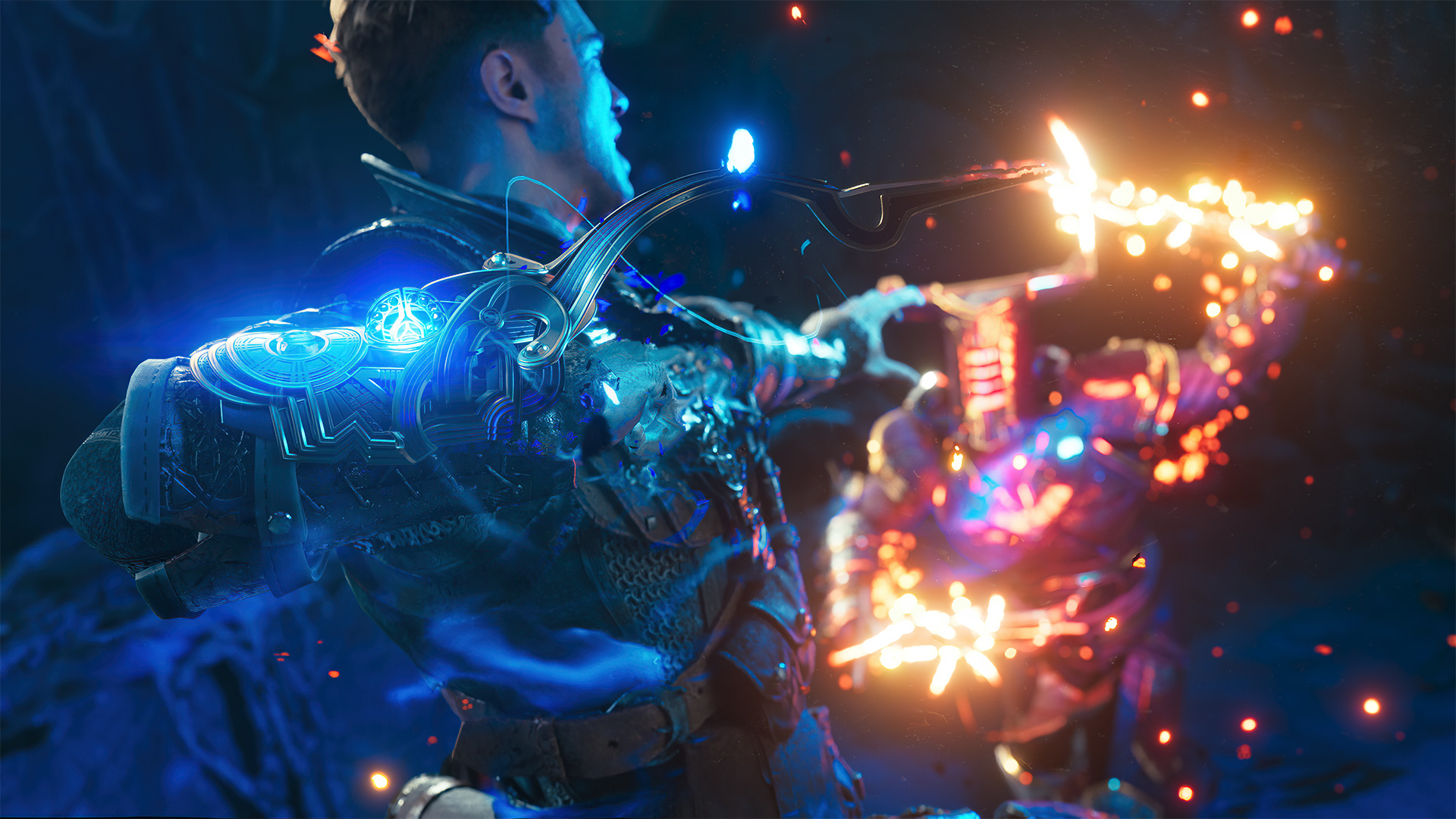
The vision is clear immediately. This is a classic FPS in wizard’s clothing – your three key magical ‘Strikes’, separated into Red, Blue and Green magic, broadly act in familiar fashion. Red is a short-range, shotgun-like blast. Blue is something like a repeater rifle, offering precision long range strikes. Green is an eldritch Uzi, firing dozens of weaker shots in short order. It makes fights tight and often tactical, forcing you to switch between your spells at high speed. These are added to by Fury abilities, more damaging spells that are tied to a mana bar, offering you flexibility in how you control larger areas filled with multiple enemies. That palette of abilities will transform over the course of the game, with lengthy talent trees for each color of magic, stat-altering gear, and Sigils that affect how each Strike works.
There’s a lot working behind the scenes, but you might have expected – based on trailers so far – for this to be a throwback FPS campaign, a linear shooter focused on set piece and spectacle. Robbins pushes back on that perception:
“I wanted that to be a part of the experience, and we’ve certainly got some linear cinematic levels – like what you’ve played today – that are delivering on that more immediate [feeling of], ‘I’m in the middle of a war, I’m in the middle of this crazy situation’, but the game’s quite a bit more expansive than that. There are large hub areas that are non-linear, and full exploration spaces. There’s a lot of the ability to revisit previous areas and unlock new areas with new abilities; there’s a whole dialogue system where I can walk up and talk to a lot of the characters and get more of their backstory and more information; there’s puzzles – there’s a lot of optional content.”
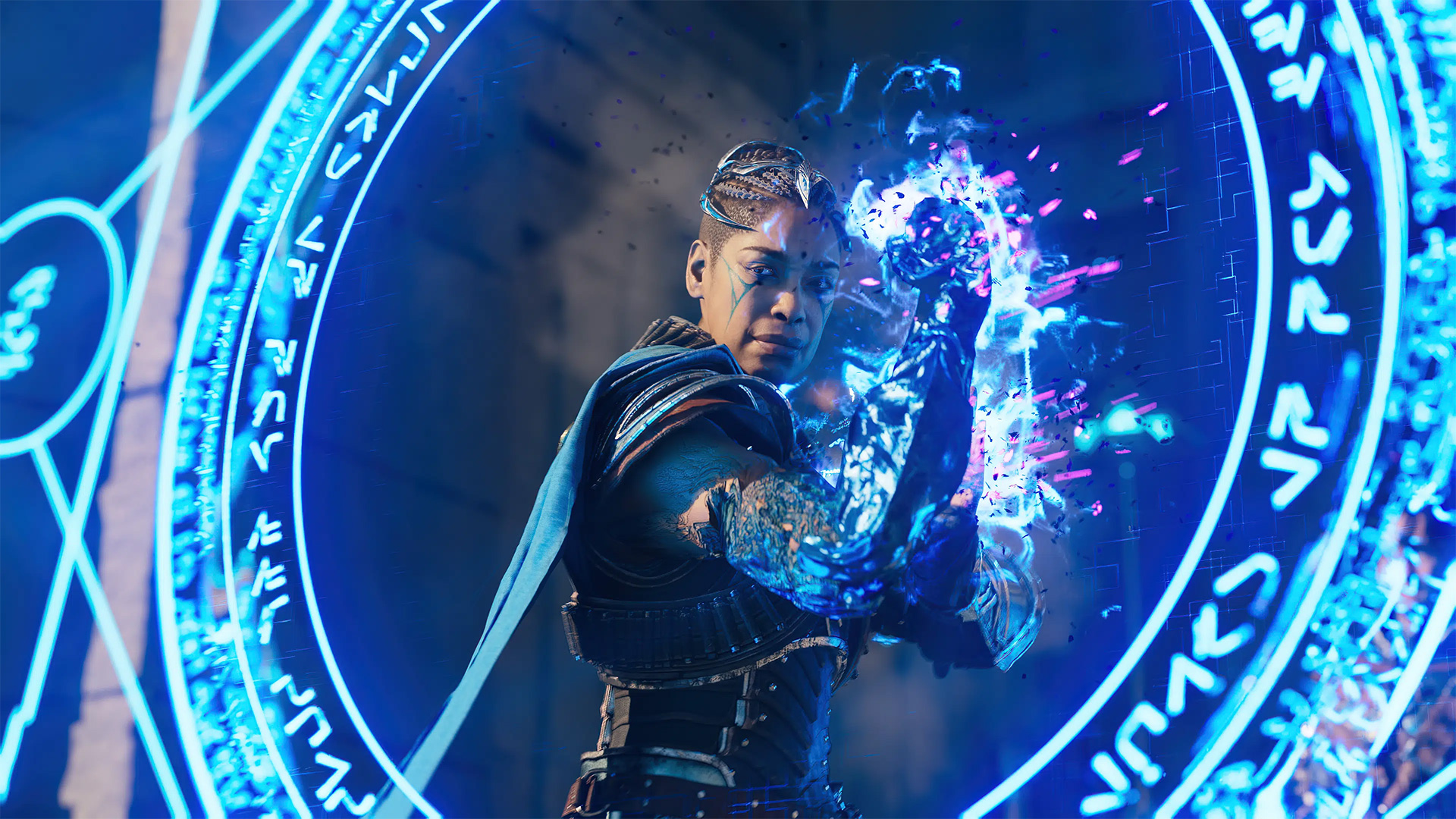
Robbins estimates that, for a playthrough taking in all of the game’s optional content, players are looking at a 30-40 hour experience. Coming out of my interview, I’m even more impressed by the scale of what Ascendent is working at here – and so is Robbins:
“The fact that we’ve accomplished what we’ve accomplished, in the time we have, with a new team, new technology, during a pandemic – all the challenges that we had – the fact that we’re here about to launch this thing, I’m just so proud of it.”
Immortals of Aveum will be released for Xbox Series X|S on July 20.

Immortals of Aveum™ Deluxe Edition
Electronic Arts

Immortals of Aveum™
Electronic Arts
How High is Too High? Ladder Matches in AEW: Fight Forever
Halo Infinite: Infection Mode Returns, Here’s How It Was Made
For Porsche’s 75th Anniversary, Xbox Reimagines Automaker’s Iconic Motorsport Liveries
source https://news.xbox.com/en-us/2023/06/16/immortals-of-aveum-hands-on-preview/
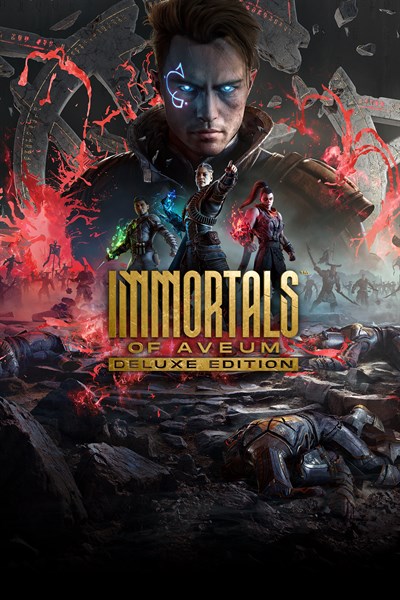
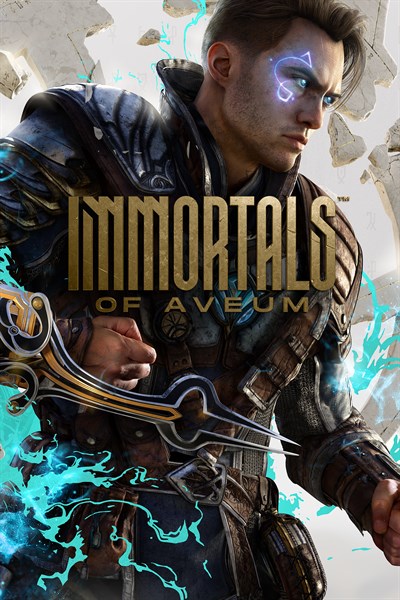



Post a Comment for "Immortals of Aveum Is Far More Than Your Typical Debut Game"